Oct 11th
- Think about why your placement experience matters! How will these help you in the future? How are you changing through DPS? Are you developing professionally and personally?
- Communicate the knowledge gained through the process of enquiry that has allowed you to realise your goals
Oct 18th
Q. What are your markers of success?
A. Being happy with where I am – both physically and mentally, being proud of all achievements. Making my parents proud. Realising my improvement in skills: graphic design skills as well as soft skills such as communication.
GRIT: Passion and perseverance help us to achieve a long-term goal.
I have… people around me who support me through my DPS journey, people who will remind me of my strength.
I can… go to bed earlier, work out more –> to support myself
I am… reflective, careful, trustworthy, responsible, quiet.
Oct 25th
Knowing where you want to be –> doing things you don’t necessarily want to do, to get to what you want.
Utilising DPS as a period to narrow down what I really want to pursue.
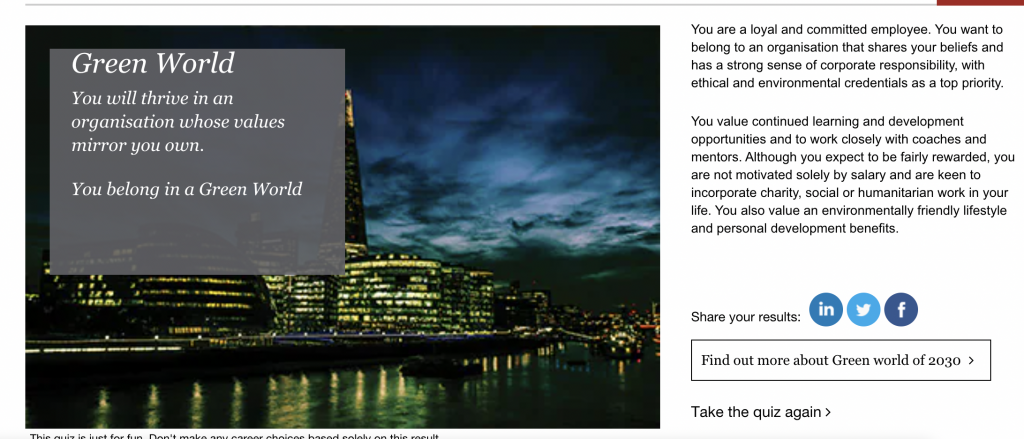
Through this “Workforce for Future” test, my result was Green World. Reading the description, I could say that it is quite accurate to what I seek in a workforce and how I see myself in there. Indeed, I am not solely motivated by salary and value continuous learning and development as well as being environmentally conscious. The result helped me to reflect on how I view myself objectively, and I was surprised by how the description fits Fruity Booty. I am working closely with the creative director, founder, designer, financial/logistics manager, and marketing manager in a small but intimate team. The brand is constantly environmentally conscious and I feel a strong sense of responsibility, as it is such a small group. This made me wonder if my value was always this way, or if working at Fruity Booty has altered my values and opinion about the workforce.
Positionality: Awareness of social position, power, and access associated with it, and an appreciation that all positions are unique, and differences matter.
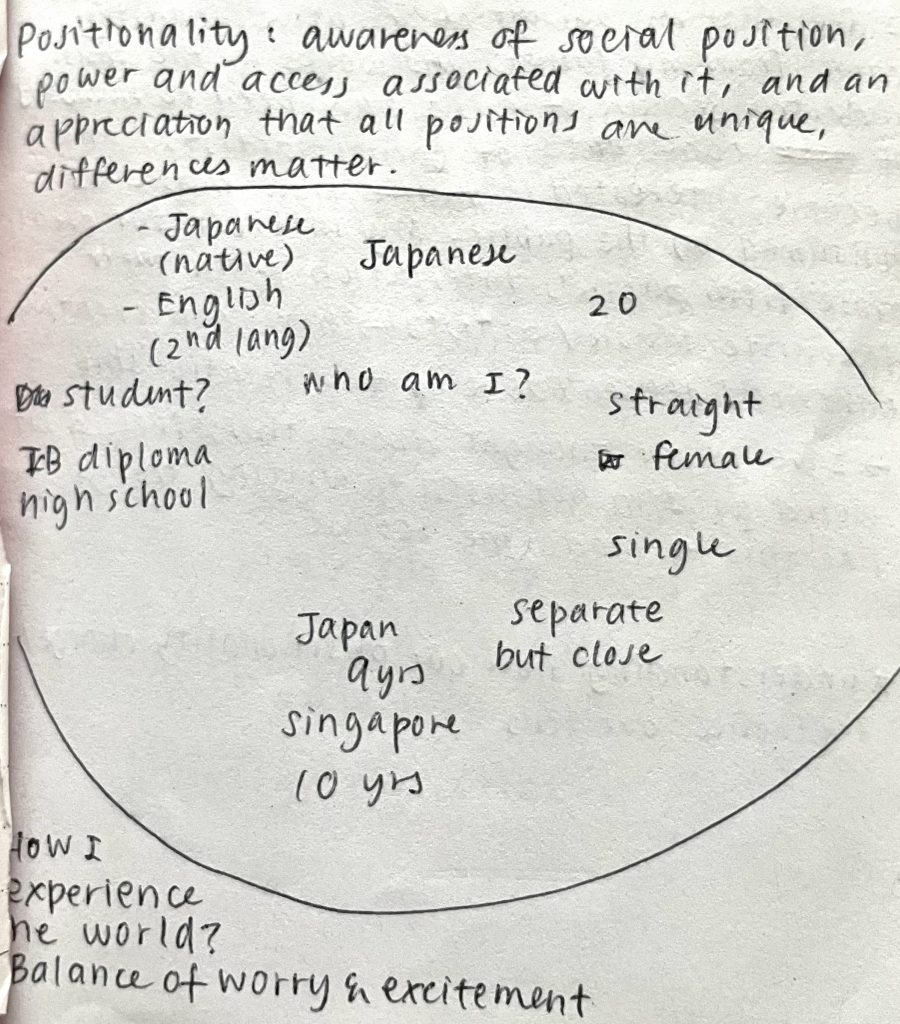
Positionality statement: Help make sense of my social position within research, and how this influences my experience or opinions. Tell the reader why your background has led you to be interested in your career/project/research/report. Understanding how our positionality changes or influences our lens of creativity.
My positionality statement:
I believe that my pursuit of a creative career came from my father, who works in the music industry. Because of this, I have been to numerous concerts by various artists from different genres as a child, and growing up I became interested in how music is consumed by the public. My interest in creativity arose from the public’s interaction with their favourite music/artists and how creatives can enhance/deepen/develop this relationship.
–> I have never thought about the roots of my interest in creativity, so it felt a little strange as I’m not used to writing something similar, but it brought me to a realisation that this (that my father is the biggest influence on my interest) might be the reason why I am in this field.
Nov 7th
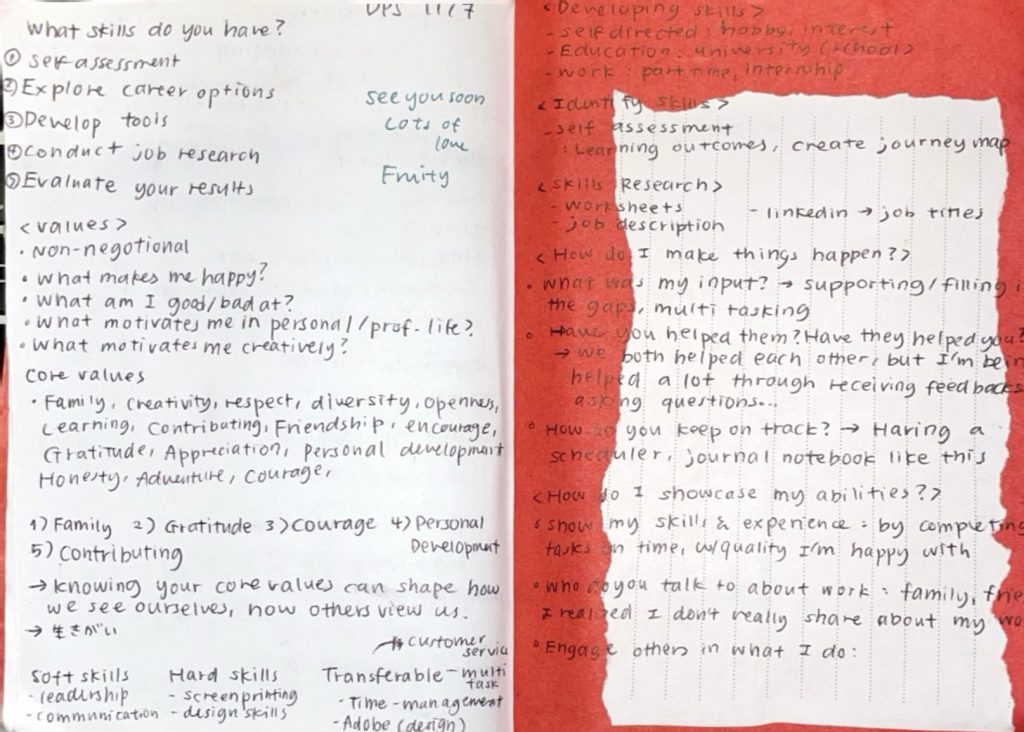
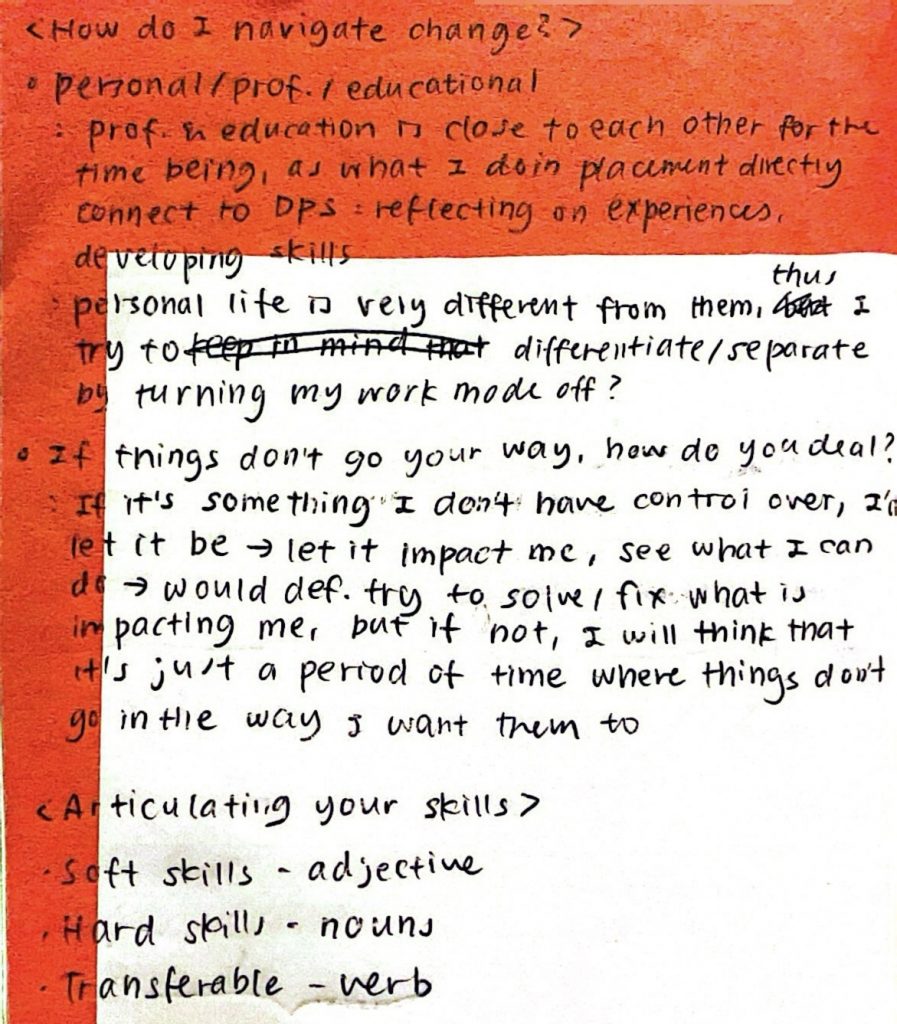
Bias
- Unconscious bias is informed by our environment and upbringing
- Important to know our bias when designing to consider who we are designing for
- Higher powers (Government, large organisations/companies, those with name and power) shape our perspective of what is the “norm” –> Without fully thinking, we can disproportionately design for our own idea of “norm” rather than truth or varied experience
- Design can be perversive (tending to corrupt, prevent –> obstinate in opposing what is right or reasonably accepted) –> following systems of oppression, shaping what we see as a norm
- Liberation: removing systematic barriers – freeing someone or something from another’s control
Thinking about how the higher powers use/abuse their power to construct the “norm” and how that weaves into our unconscious mind shocked and scared me. I assume that this unconscious mindset or value formed through our upbringing is difficult to alter after growing up — can I even notice that I had been manipulated by these powers to believe in the norm, for their advantage? How can I realise this and force a change to develop a broader, sophisticated perspective of society and the “norm”?
This session felt very philosophical and made me reflect on the “norm” consolidated in our society and how I could view this from a different angle, to design something that is not heavily controlled by bias. I believe realising this will have a significant impact on how/who/what/why I design in the future.
Blog Task
Embroidery project for CR25
The client – Fruity Booty
Who benefits from it?: Through the embroidery being featured in one of the Fruity Booty lingerie, it allows my piece to communicate the brand’s message, which I greatly sympathise with; Female-led, designed by women for women, utilising dead-stock and sustainably sourced fabrics, changing the view of women’s lingerie by the society.
The value this design holds is the creative input of our team — curating a concept for the collection and carefully designing and altering the fit and shape of the pieces. This fabric with the embroidery pattern is custom-made and is one and only, which I find valuable.
As I have written, the message and the value of the brand intimately align with my values, and how I wish society to change its perspective of women, especially in Japan – where the “norm” set by the higher power still plays a strong role which I view is a serious problem of Japanese society.
To include another value, I could adapt it to research the production process in detail –> I know that it’s been produced in Portugal, but who and what exact exertion does the factory input to make the production ethical and sustainable?
Dec 6th
Regenerative cultures: based in place & culture
- Local provisioning, local biosphere to replenish and develop an ecological understanding of the place
- Design with humans and non-humans –> delicate activism/disruption to make the system flourish, rather than destroy
- Handle complexity by looking at the specificity of real people, real places, and real climate
- How can you place yourself to have an impact? –> Pushing about the urgency for action could lead to doom and gloom, but we need to reconfigure the situation
- Knowing to move slowly in times of urgency. We could be made to feel like a problem solver, but we don’t have to. We can delicately disrupt the system — we can’t fight a change. “You cannot dismantle a system by fighting against it. We can create a better system that makes the old one obsolete.”
What does it mean to be local? What is becoming local to me within my placement? What is my bio-region?
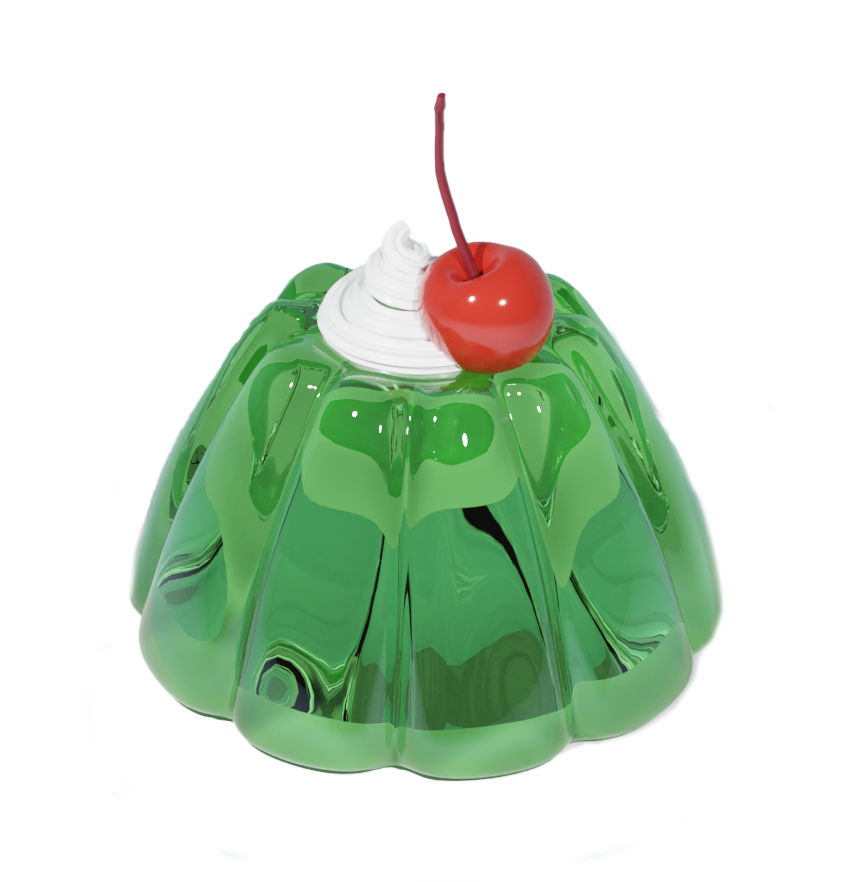
Leave a Reply